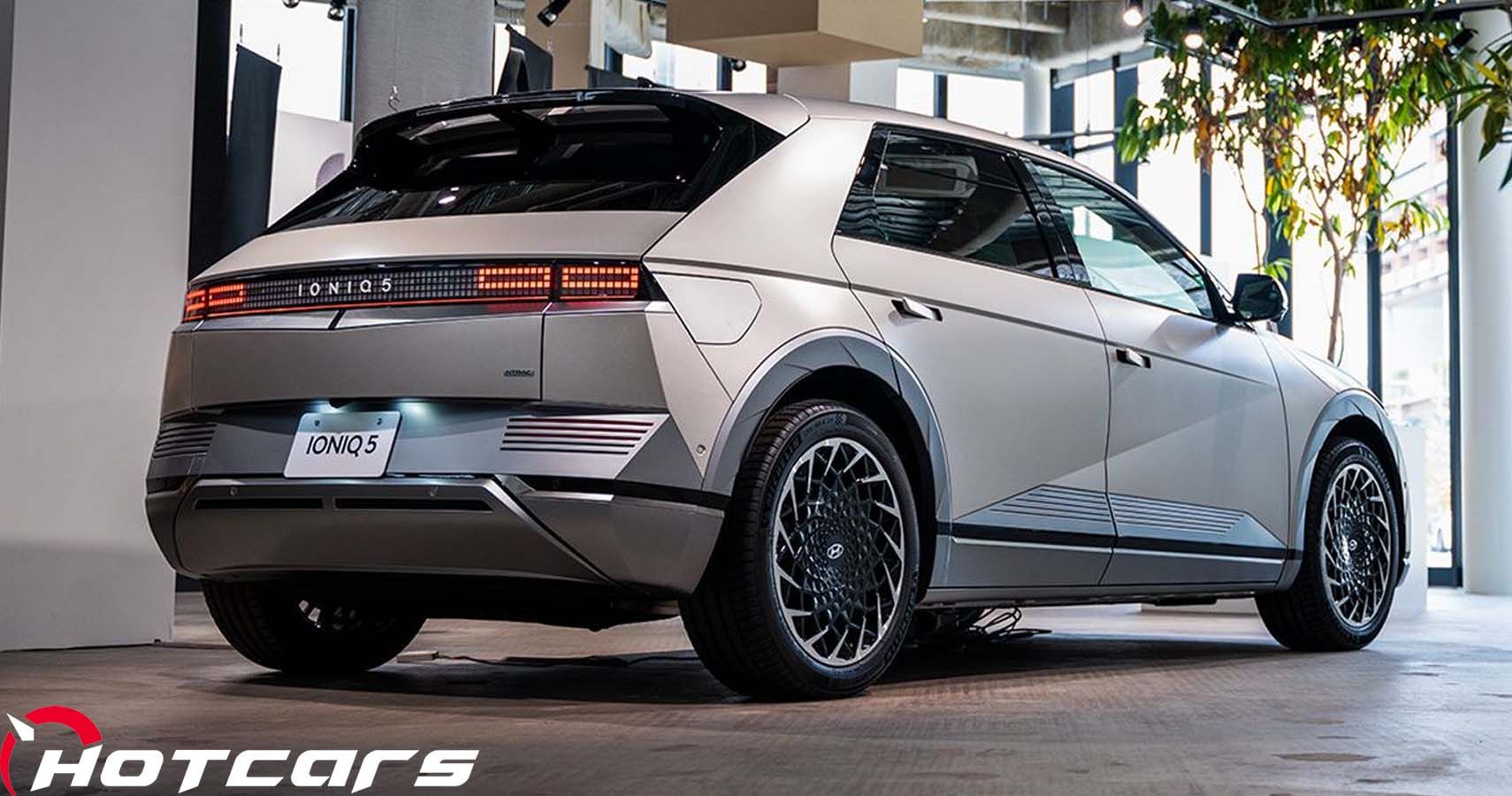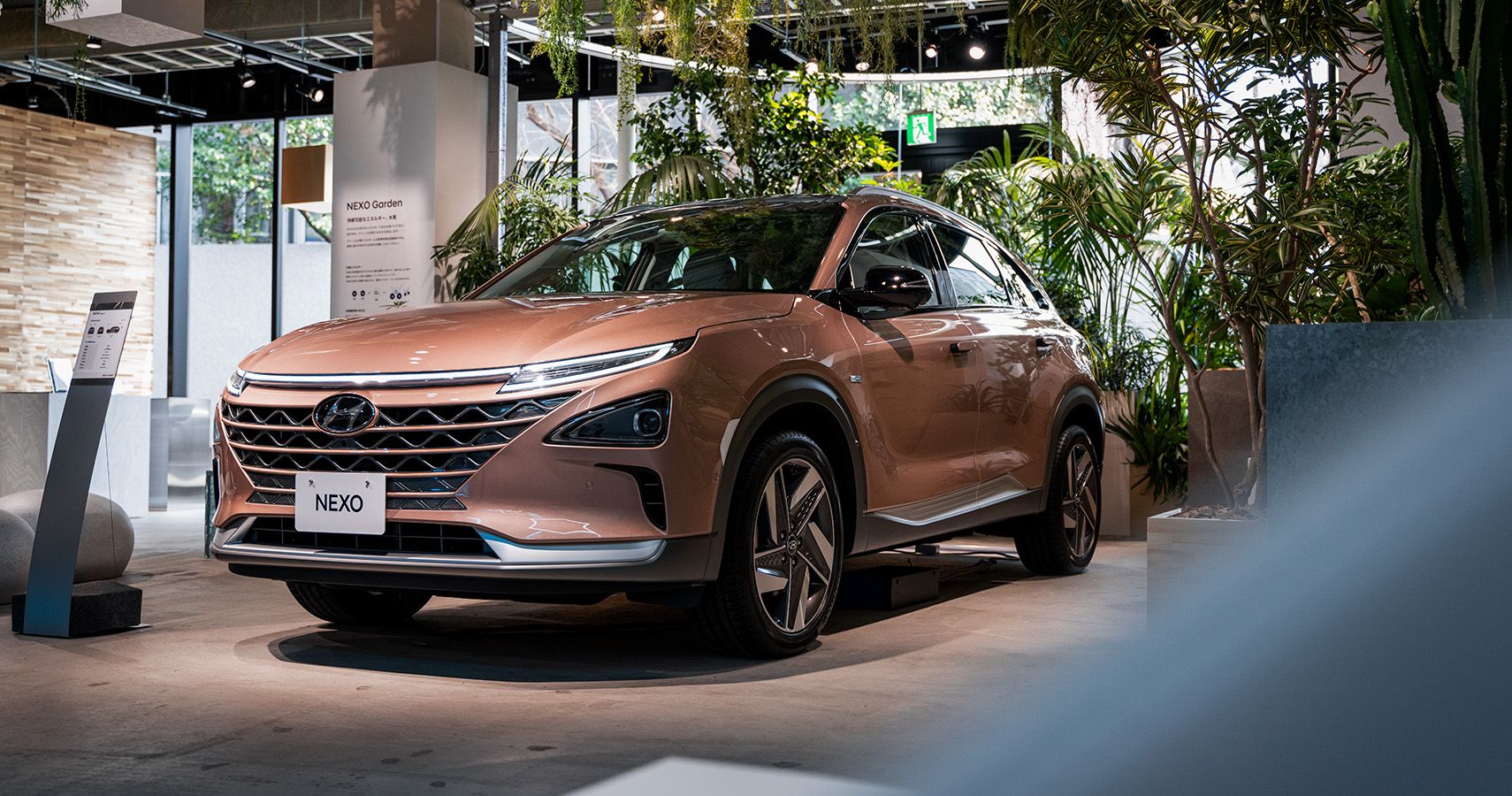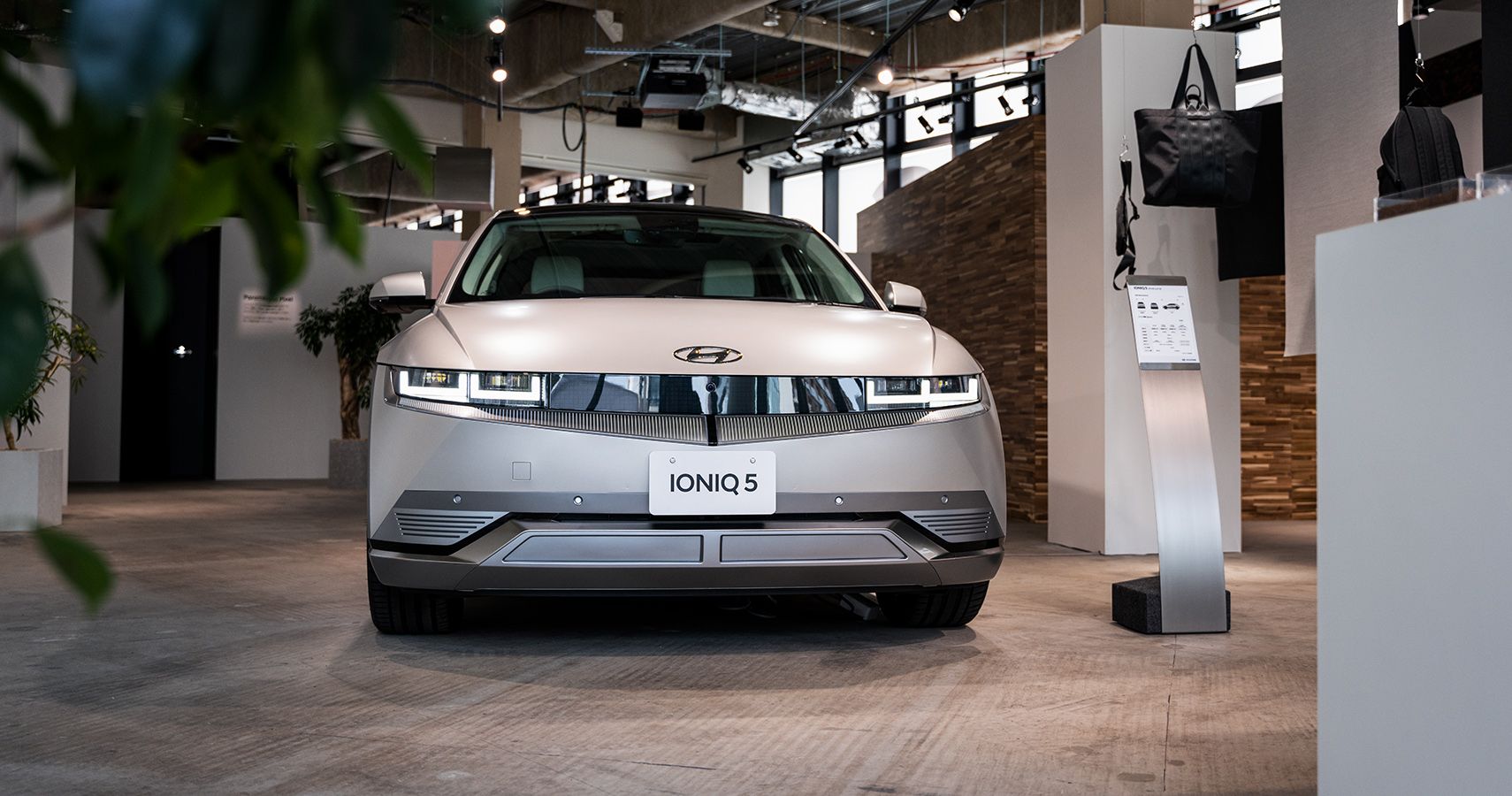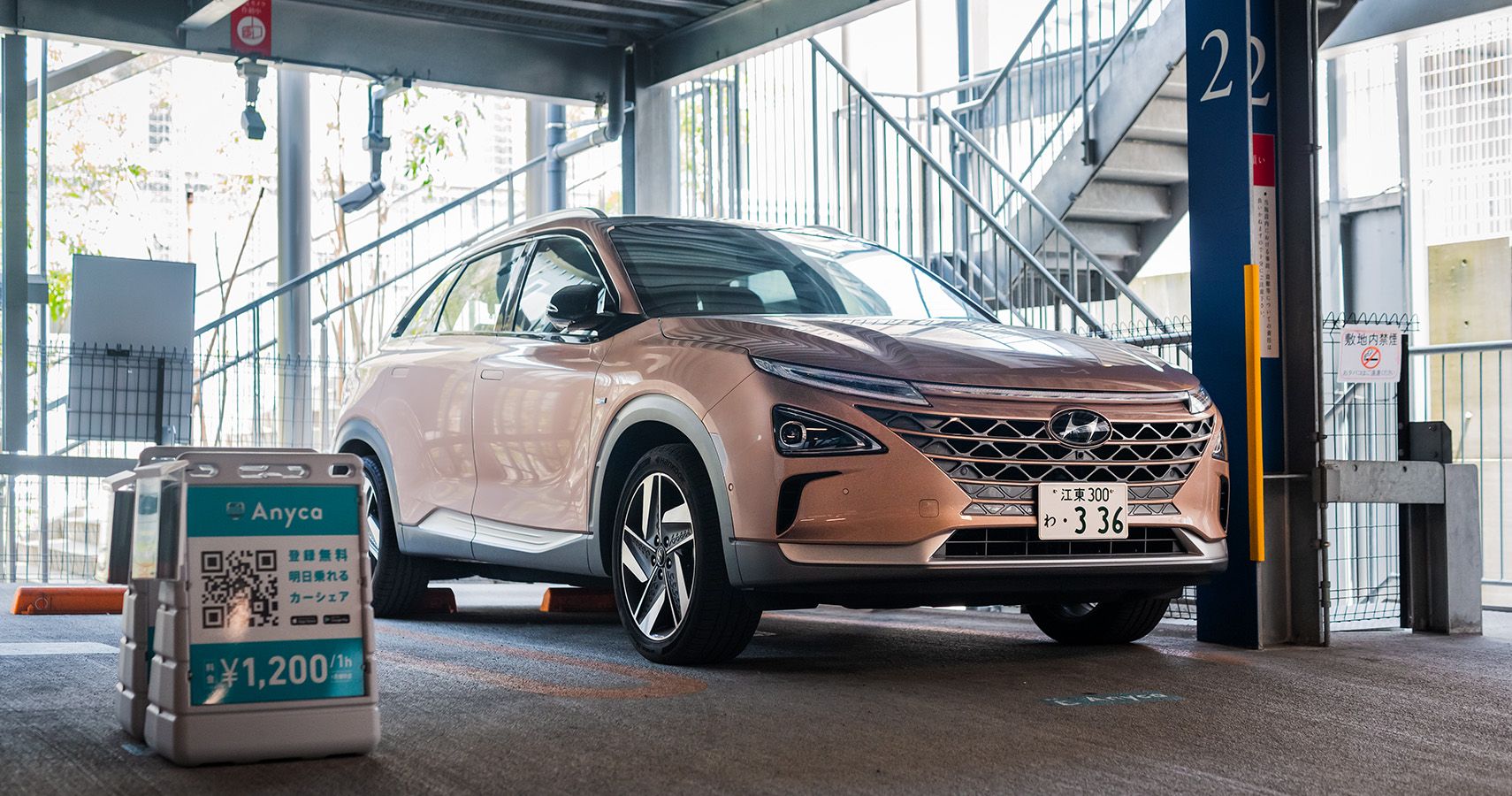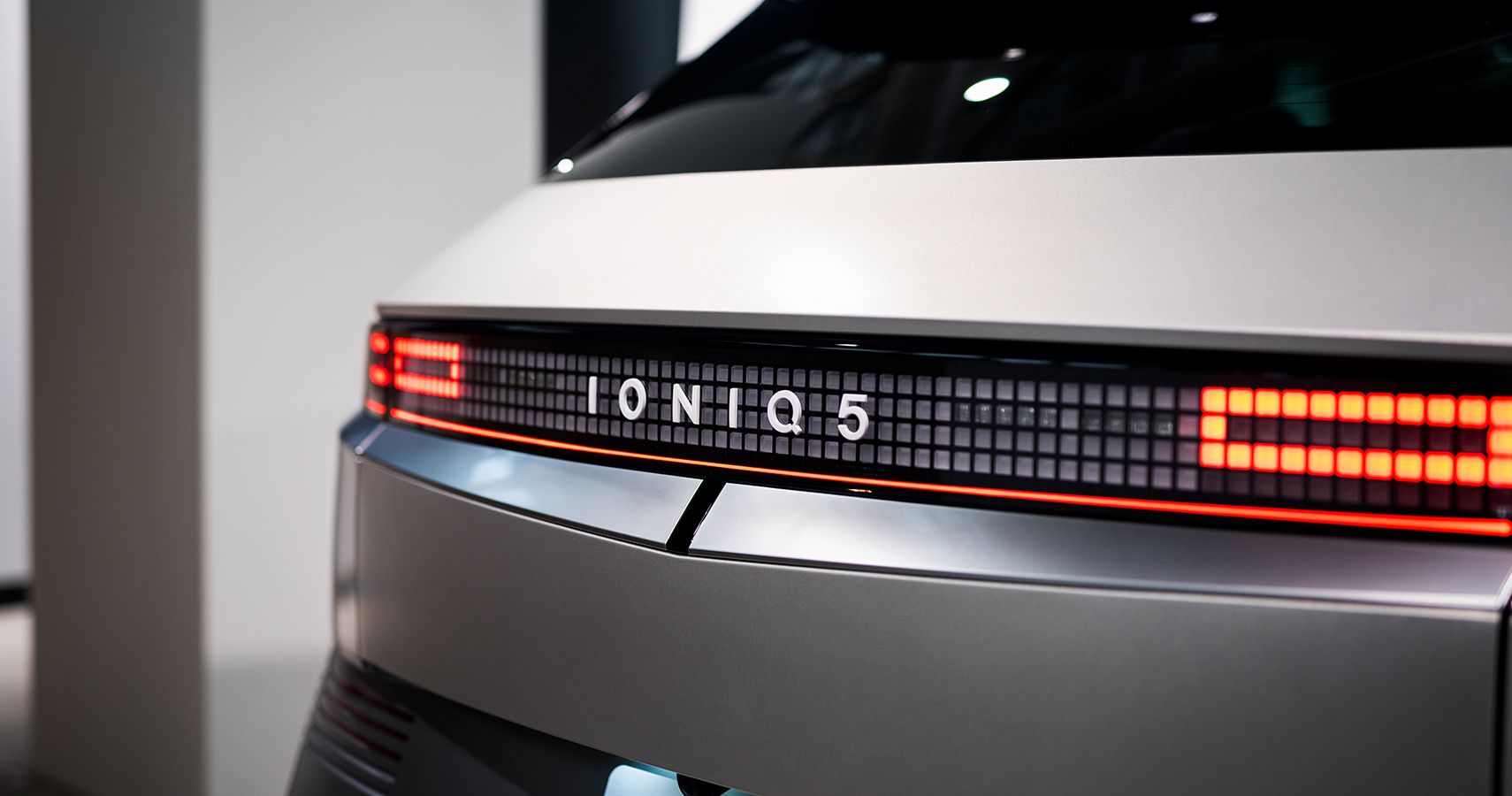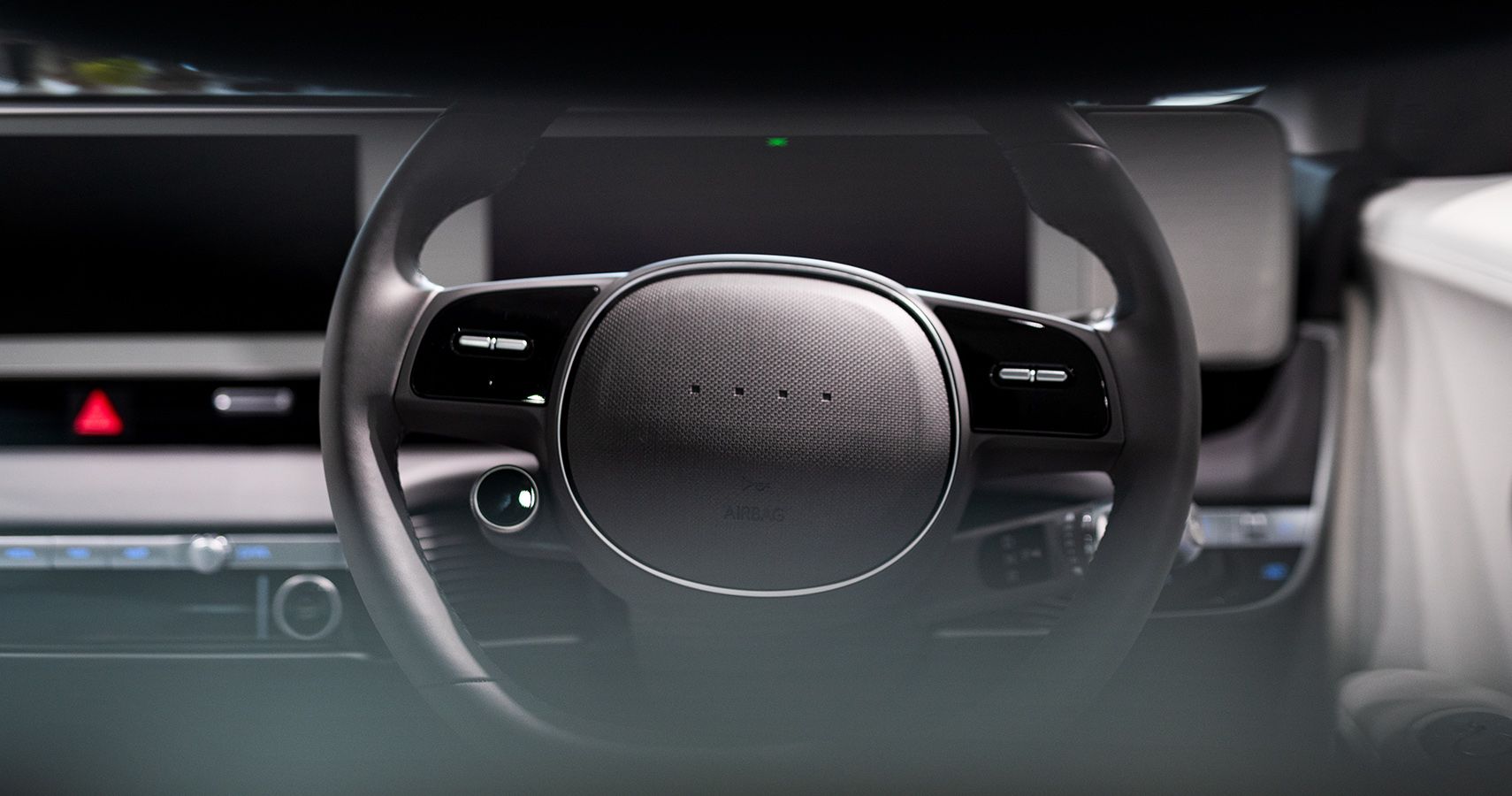Back in 2001, Korean automaker Hyundai made their move to enter the Toyota-dominated Japanese automotive market. Less than a decade later, Hyundai packed up their cars, closed their offices, and left the country after years of poor sales. Fast forward to 2022, and Hyundai is making a comeback to Japan after a 12-year absence to challenge themselves once again in a country where local automakers reign supreme. Out of the 4.5 million cars sold in Japan in 2021, nine tenths were from domestic manufacturers such as Toyota, Nissan, or Honda.
There is however more room for competition in the Electric Vehicle market. With growing pressure to turn towards cleaner vehicles, Japan has seen an increase in EV sales over the past two years as it slowly recovered from the double-edged sword that the pandemic and chip crisis created.
While it isn’t uncommon to see Teslas and Nissan Leafs roaming the streets of Tokyo, EVs remain an overall rare sight and even rarer in the countryside. Japanese manufacturers’ slower pace in adapting to the EV market has allowed foreign EVs’ share in Japan to increase significantly, with Volkswagen AG and Stellantis leading the way. Such conditions made it the perfect stage for Hyundai to introduce their brand-new EV and hydrogen fuel cell models; respectively, the Ioniq 5 and the Nexo, a fuel cell vehicle we love.
But this time, customers will not be getting a traditional purchase experience. Hyundai is taking a less costly route all the while allowing potential customers to fully immerse in the Hyundai world; a combination of online sales with selected test drive locations that focuses exclusively on the Ioniq 5 and the Nexo.
Hyundai House Harajuku: An Exhibition Space For Two Flagship Cars
Traditional car shopping most often involves a visit to a dealership. But such brick and mortar dealerships can be risky investments, especially for a brand that is attempting a comeback after over a decade of absence. Hence, Hyundai’s two-story 900 square-meter pop-up space in the vibrant district of Harajuku.
The Hyundai House Harajuku opened its doors earlier in the year and will stay open until early summer. The pop-up venue itself was recently used by various other brands, such as Louis Vuitton, Hermès, Cartier, and even Porsche to promote their all-electric Taycan. Appealing to a younger driver demographic, the Harajuku location is a strategic move for Hyundai to portray itself as a dynamic, modern, and innovative brand to build a new customer base.
More than just a typical showroom, Hyundai has created an inviting exhibition space for visitors to discover and learn about the brand and its concepts of mobility and sustainability. Test drives are available for both visitors and potential customers, and a consulting lounge area has been arranged to advise customers on their future purchase.
As the Hyundai House in Harajuku will come to an end within the next couple of weeks, the manufacturer is planning to open a new showroom, located in Tokyo’s neighboring city, Yokohama. But make no mistake: this will not be a dealership and the buying process in itself will solely remain online.
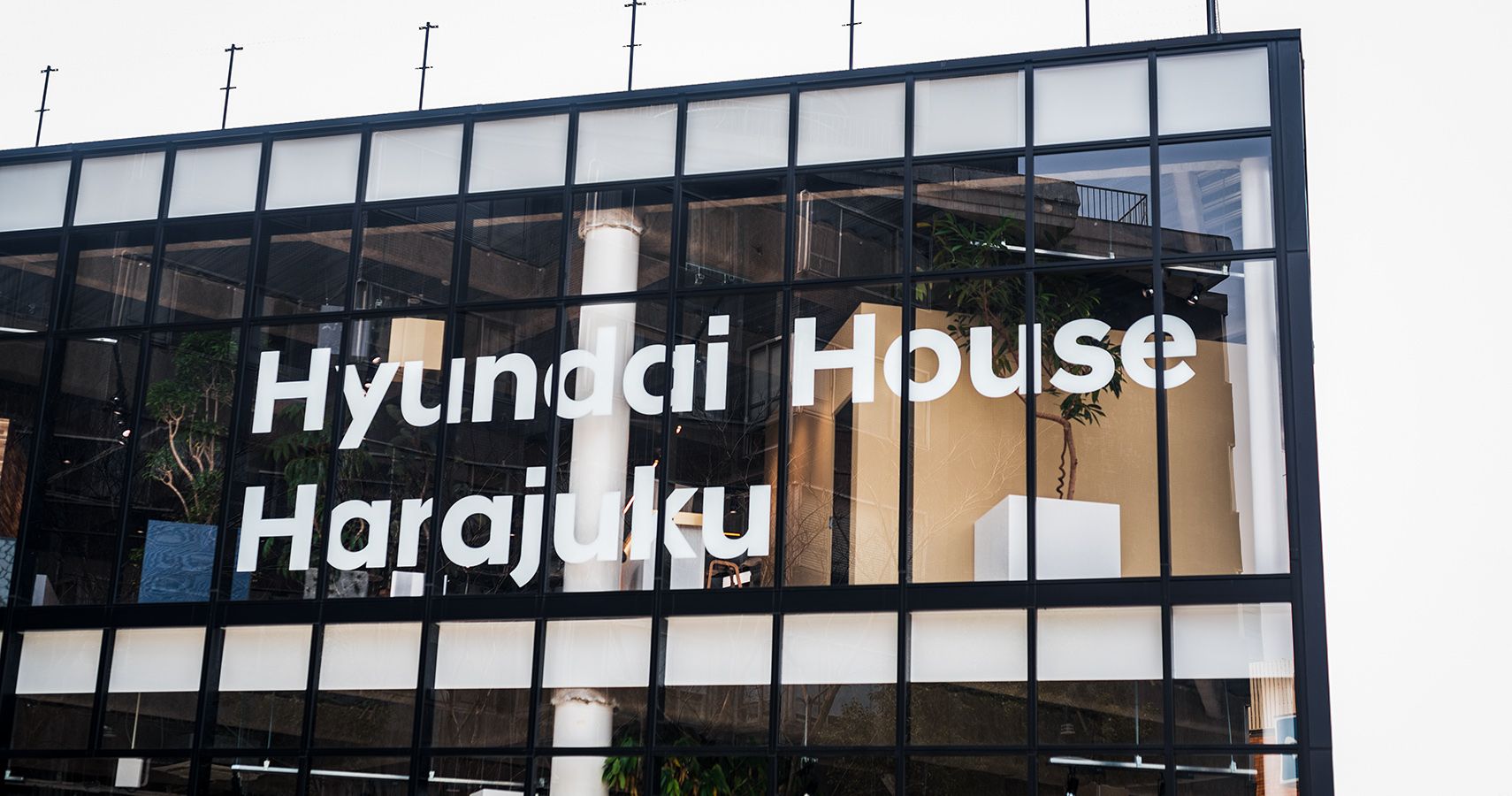
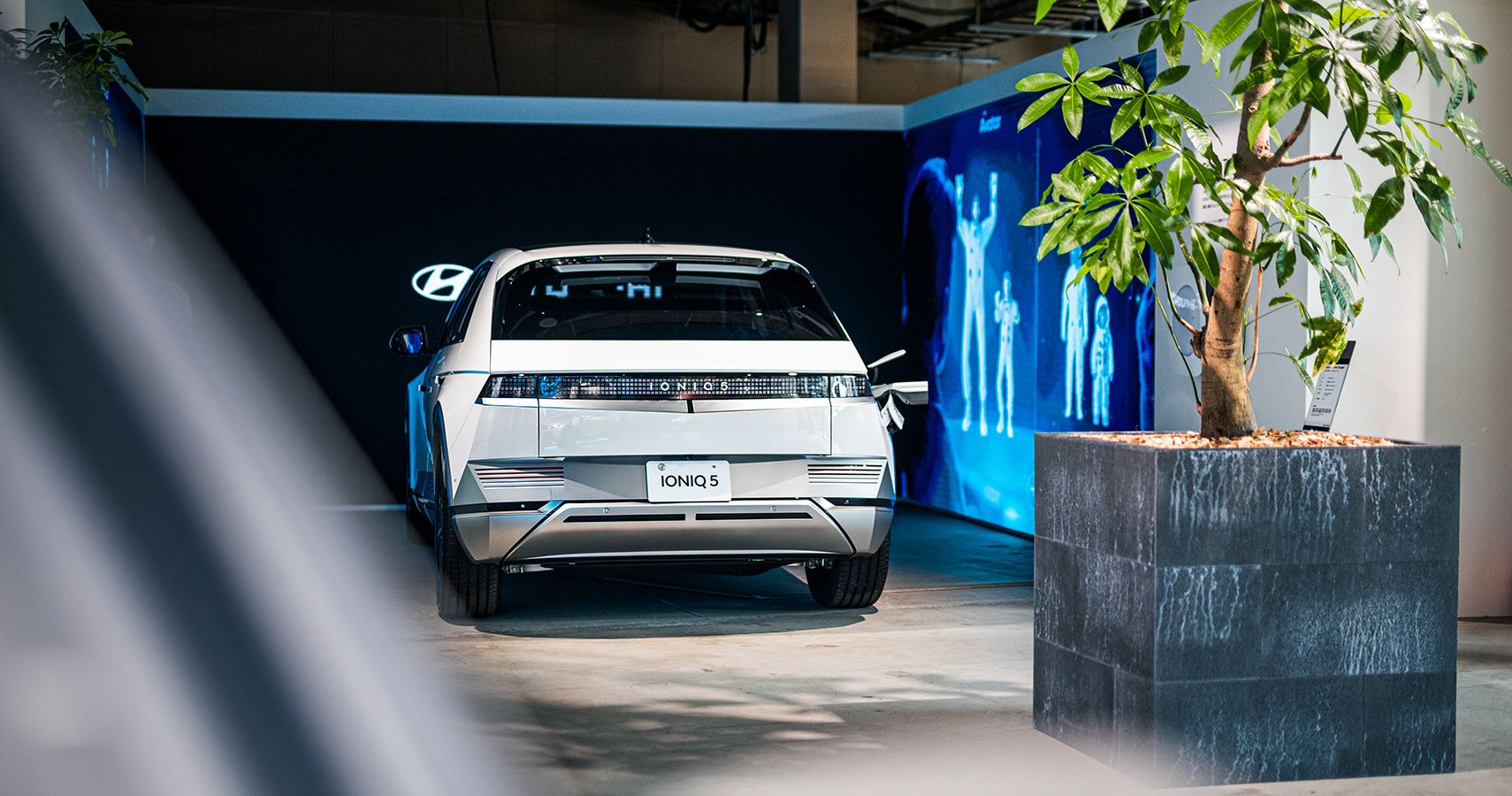
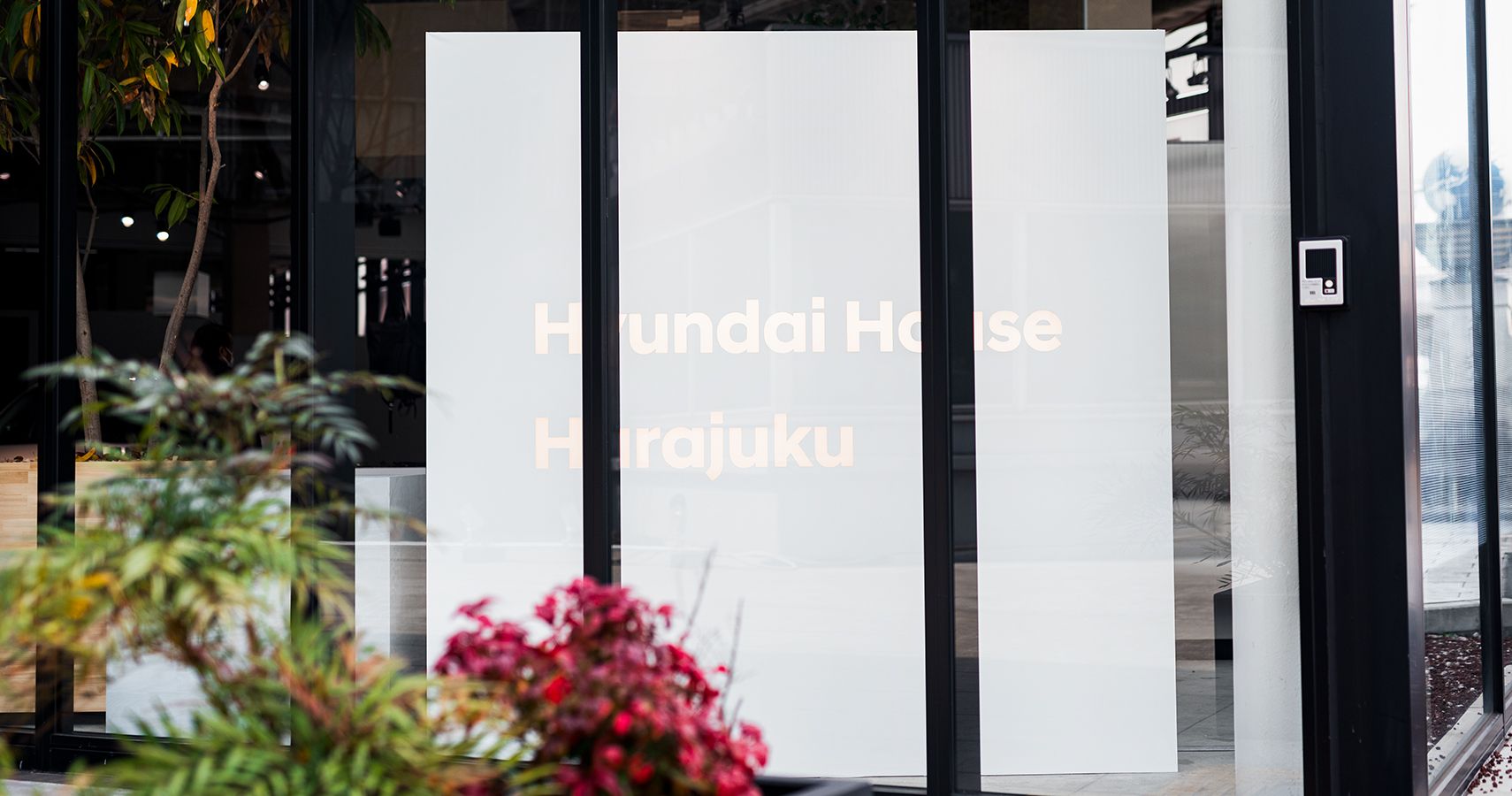
Skipping The Test Drive To Rent A Hyundai
Hyundai isn’t limiting itself to its pop-up showroom to target drivers. For those who prefer a more hands-on experience than a test drive at their pop-up location, Hyundai has partnered up with the popular car sharing app Anyca to rent its cars out. Established in 2019 by DeNA Sompo Mobility, Anyca is a service that quickly became a widely-used platform as it helped connect car owners and drivers, in a similar way Airbnb does it with property owners and travelers. This allows app users to try out a wide variety of cars that range from Daihatsu kei cars to McLarens and other high performance sports cars.
Through the app, the Korean manufacturer is offering the Ioniq 5 and the Nexo at several locations from Tokyo to Yokohama, for a rental rate of under $10 per hour (plus an additional mileage rate). App users can book the model of their choice at their own convenience and pick it up by simply hovering their driver’s license over a sensor attached to the car. According to Nikkei Asia, Hyundai is already receiving repeated bookings, earning them a “high customer satisfaction.”
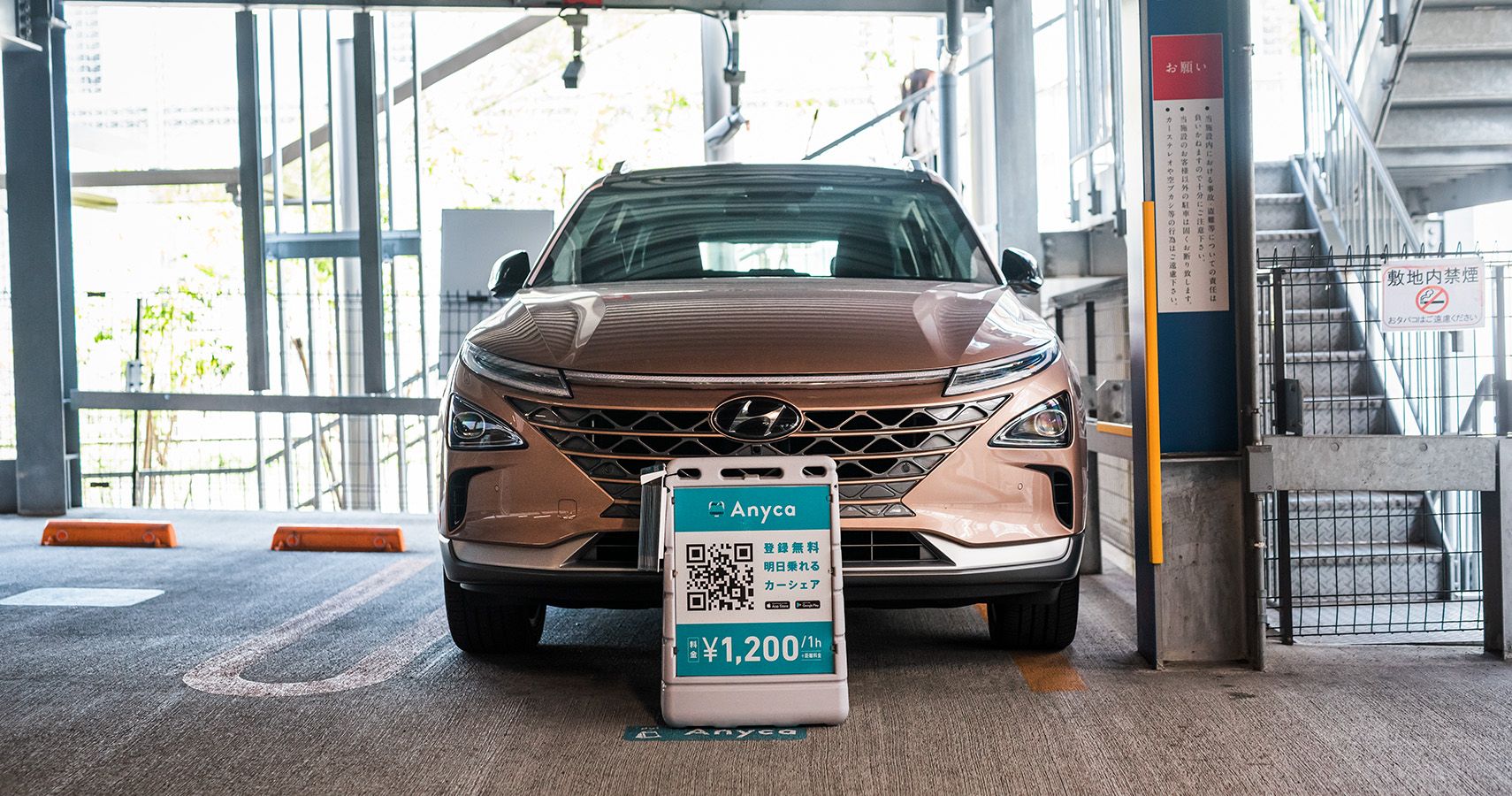
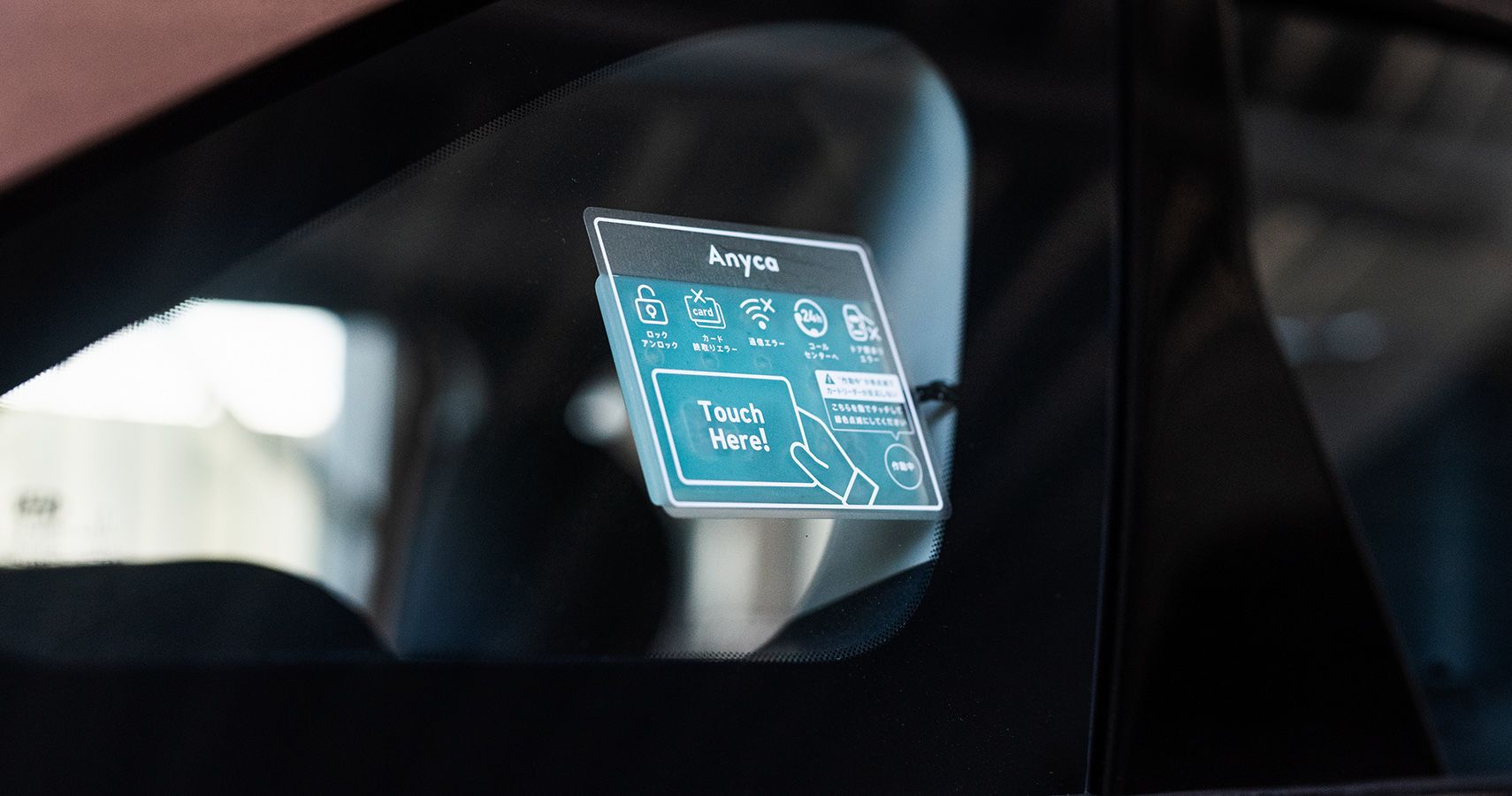
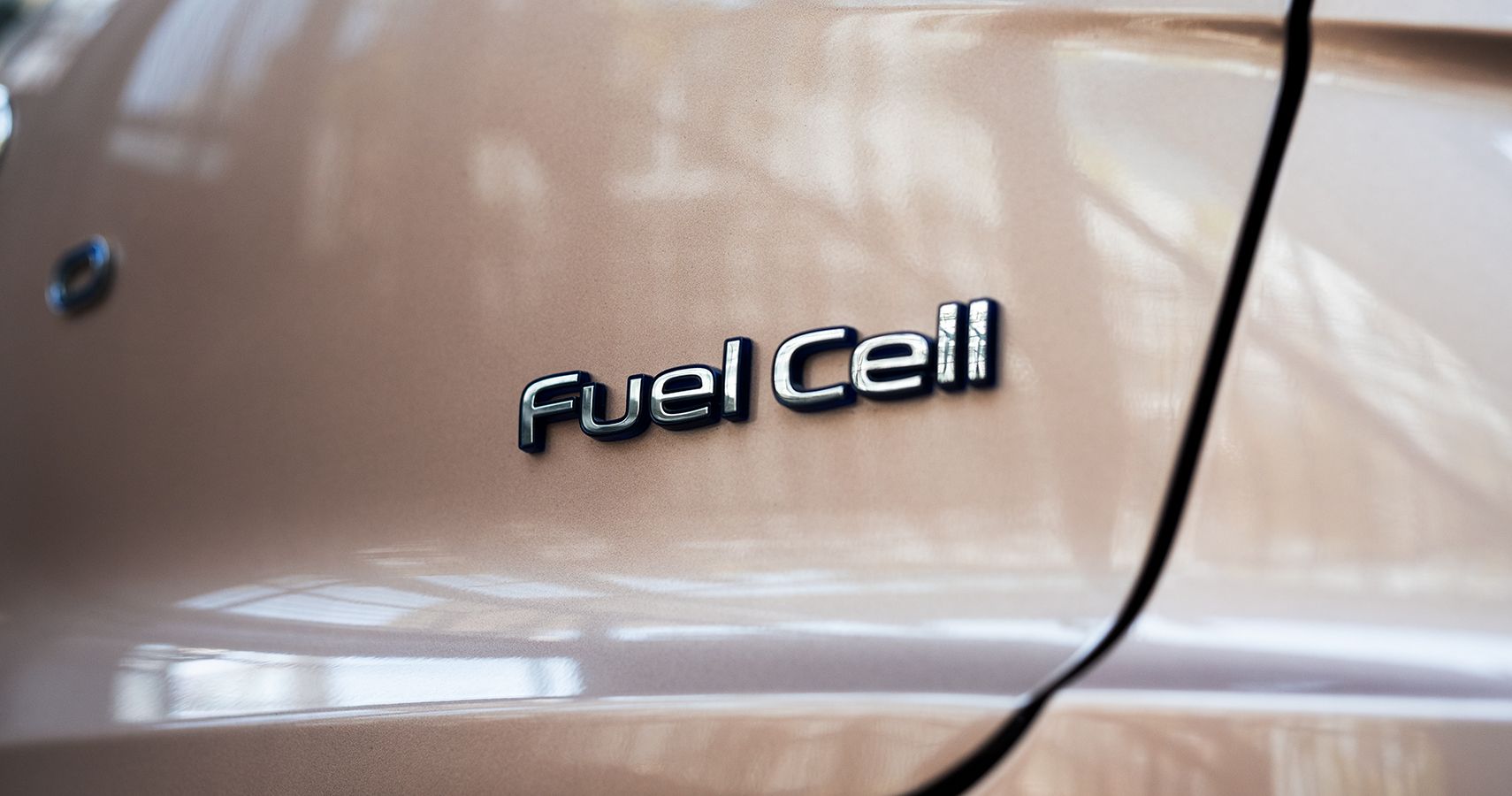
Can Hyundai Redirect Customers To Buy Its Cars Online?
By leaving aside the rest of its lineup and focusing exclusively on the Ioniq 5 and the Nexo, Hyundai is completely rebuilding its brand image in a country where it once struggled to establish itself. And its two environmentally-friendly flagship vehicles offer new options for Japanese drivers who are searching for something that looks inherently different, otherwise not offered by local manufacturers. Added to this is a modern approach to car shopping, by cutting off the traditional dealership visits to push online sales.
As the presence of Hyundai owners in Japan is expected to grow, Hyundai will need to provide adequate support for vehicle maintenance, and it plans on doing so by partnering up with major repair shops across the country. It is an important step for Hyundai as it will need to provide equal levels of support as dealerships via proxy, to help future owners gain confidence in choosing a Hyundai car with no direct line of support over another vehicle.
While it seems that Hyundai has every aspect of this online shopping experience covered, its success is not guaranteed. It will have to overcome several obstacles starting with working around the local infrastructure. Although the number of electric and hydrogen stations have been on the rise, their location limitations end up dictating an EV or Fuel Cell Vehicle’s potential usage, making it difficult to convince transitioning owners to make the switch to unfamiliar territories. On the other hand, Toyota has pledged to launch 30 EV models by 2030 (the equivalent of 3 to 4 EVs per year for the next 8 years), which will slowly but surely help them claim their share of the growing EV market. Hyundai will need to have secured their own loyal customers by then.
In addition to it comes the obstacle of turning rental customers into buying customers. As vehicle ownership has been on the decline especially amongst Japan’s youth, the group Hyundai wants to target.
Hyundai has taken a smart approach to reach its audience via such a modern car sharing strategy as the number of rental cars have more than doubled over the past decade and car sharing locations have grown exponentially in order to comply with the ever-growing demand. As people shy away from ownership and its high costs, drivers who regularly rent may not necessarily make the switch to actually purchasing a vehicle. This is a challenge that Hyundai may likely have to face, and they will need to find creative ways around it as it keeps on growing its presence locally.
Despite the arduous road ahead, a drastic change of identity and a head start in the race to electrification may well be the key to Hyundai’s return to the Land of the Rising Sun.

